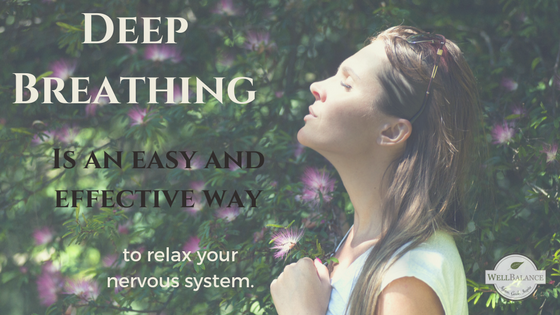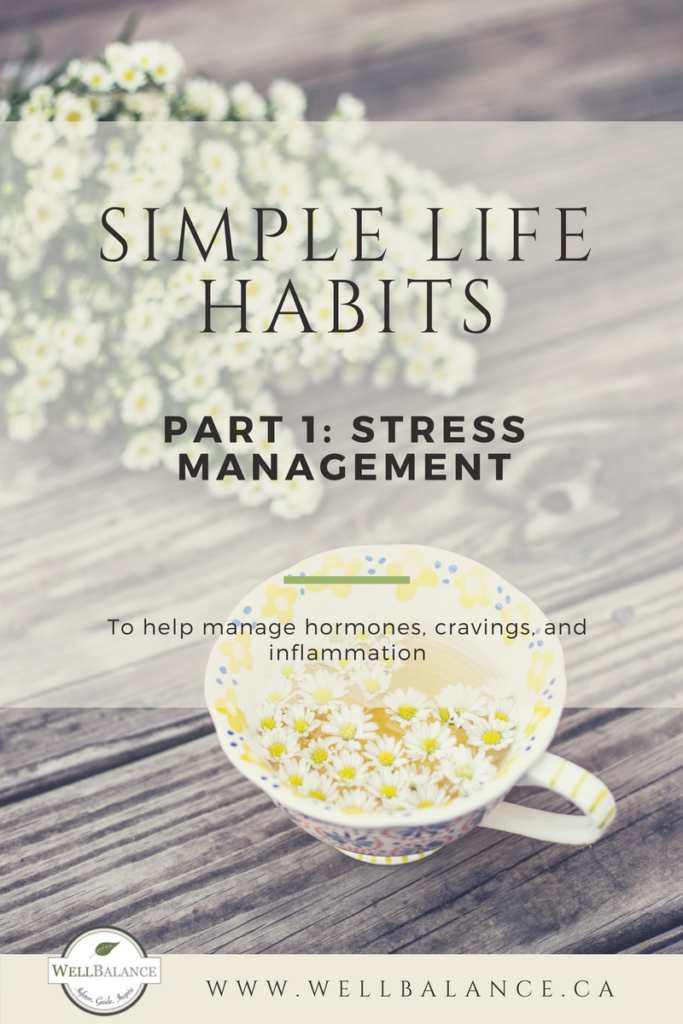Life what?
I consider these as practices other than diet that can help us keep inflammation in check, regulate immune function, balance hormones, optimize digestive function, and a whole lot more. Sounds like a lot! It sure is, but it doesn’t have to be complicated. In this series, I discuss a few of my favourite life habits.
Stress management:
Managing stress and our reactions to stress are very important for the optimal function of all systems in our bodies. A certain amount of “eustress” can be beneficial to motivate us and challenge us, however, if the level of stress or how we react to it becomes too much, it becomes “distress”, which can be damaging to both our body and mind, and can lead to negative long-term consequences.
Because we can’t live in a bubble, we will always have a certain amount of stress around us. The key is working on improving our ability to manage it, and how we react to it. There are many different ways we can train ourselves to better manage stress levels. The key is finding something that works best for you.
Some of my favourite approaches to improve stress management skills include:
- deep breathing, spending time in nature (even just 10 minutes!)
- mindfulness practices
- meditation
- connecting with others
- taking regular breaks
- having a relaxing cup of tea
- participating in hobbies or sports
- and most importantly, taking time for you! When the airplane is going down, it is so important to put your own oxygen mask on before helping everyone else with theirs. Same goes for life. More on this in another post.
I often suggest deep breathing as a first and very effective step to train the nervous system to calm down. Often when we feel stressed, we tend to breathe quickly and shallowly. However becoming aware of this tendency, and breaking it with some slow, deep breaths can stimulate your nervous system to relax.
Your diaphragm, a muscle between your lungs and your stomach, is innervated by a nerve called the vagus nerve. When activated, it can communicate with your nervous system and tell it to switch into relax mode.
[ctt template=”7″ link=”3aJdI” via=”yes” ]A certain amount of “eustress” can be beneficial to motivate us and challenge us, however, if the level of stress or how we react to it becomes too much, it becomes “distress”, which can lead to negative long-term consequences.[/ctt]
The Nervous System
We have two modes of our nervous system, the sympathetic nervous system (SNS), otherwise known as “fight or flight”. This is the nervous system that is activated during stressful times. For short periods of time during an emergency, this nervous system can help you perform better, run faster, more effectively recall the events of the situation, and protect yourself. These are all great things when you are being chased by a bear, or whatever short-duration immediate stress presents in front of you.
However, when this fight or flight response is activated continuously, repeatedly, or for long periods of time (like in today’s hustle-bustle society?), all sorts of imbalances can happen. The body isn’t supposed to be in stress mode all the time. Think about animals: when the stress of a chase is over, the animal discharges that energy and then goes and relaxes. We don’t tend to do that.
Chronic production of stress hormones like cortisol over long periods of time can affect all sorts of systems, including the brain, the immune system, the digestive and reproductive systems, and can lead to the development of inflammation. Lots of things can go wrong with too much stress!
On the other hand, the parasympathetic nervous system (PNS) is called the “rest and digest” response. When this system is activated, we feel relaxed, and blood flow and nerve conduction to the digestive tract and reproductive organs are optimal. We don’t need to digest or reproduce when we are fighting for our lives so these two systems don’t get much attention in SNS mode.

So back to breathing. When we take a slow, deep breath, stretch receptors in the diaphragm activate the vagus nerve. The vagus nerve communicates with the nervous system and activates the PNS. The vagus nerve also innervates many digestive system organs.
It seems like such a simple exercise, but deep breathing can provide so many benefits. It can be helpful to practice on a regular basis. I find my nervous system tends to switch to PNS much more easily the more and more I practice deep breathing. It can be a great exercise to try during stressful moments, and before meals to optimize nerve conduction to digestive organs.
A great simple starter breathing exercise is 4-7-8 breathing. Taking slow, deep breaths, breathe in through your nostrils for a count of 4, hold it for 7, then breathe out slowly from your mouth for a count of 8. Try this 4-10 times, and see how you feel afterward. Often people remark feeling much more relaxed. How about you?
A great simple starter breathing exercise is 4-7-8 breathing. Taking slow, deep breaths, breathe in through your nostrils for a count of 4, hold it for 7, then breathe out slowly from your mouth for a count of 8. Try this 4-10 times, and see how you feel afterward. Often people remark feeling much more relaxed. How about you?
Come back next week and I will talk about another simple life habit that can help control hormones, inflammation, and cravings.



[…] Part 1: SIMPLE LIFE HABITS Part 1: Stress Management […]